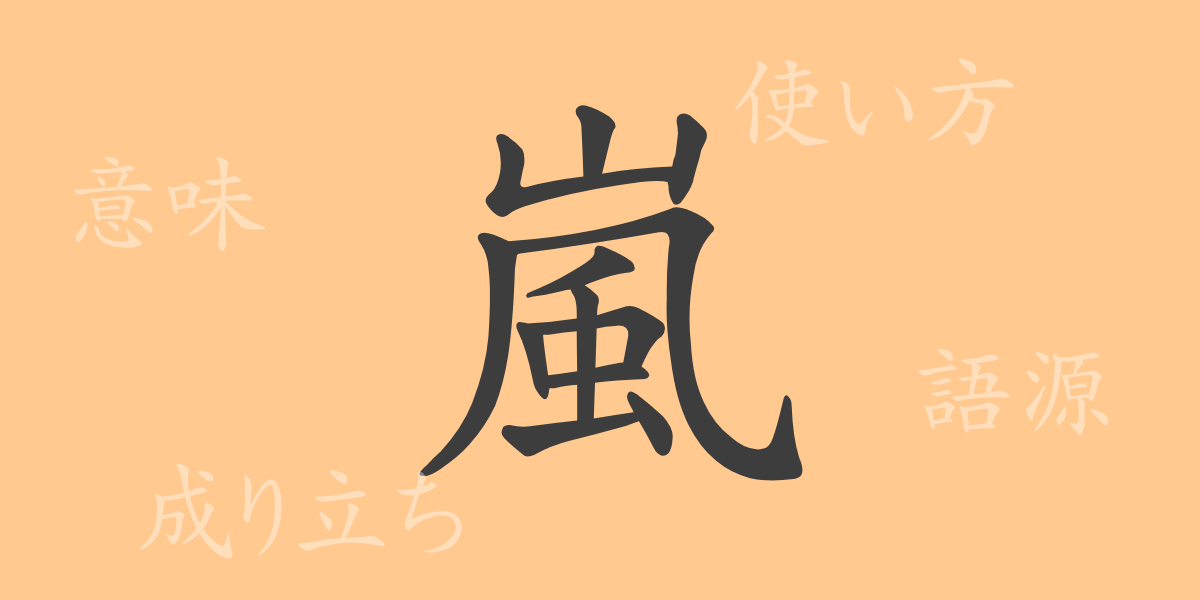“
Each of Japan’s four seasons has its unique beauty, vividly reflecting the changing nature of our surroundings in our lives. From the cherry blossoms of spring and summer cicadas to the autumn leaves, and as a symbol of winter, ‘嵐 (Arasi)’ has deeply ingrained itself in culture and language. This article delves into the kanji ‘嵐,’ exploring everything from its origins to its meanings, usages, and its presence in idioms and phrases.
Origins of 嵐 (Arasi)
The word ‘嵐’ has been a part of the Japanese language for centuries, primarily used to describe natural phenomena. Its origins are debated: some suggest it evolved from ‘山颪 (Yamaorosi)’ related to mountain winds, while others believe it comes from the word for stormy winds ‘嵐 (Arasi).’ Regardless, it has consistently symbolized the vigorous movements of nature, appearing frequently in historical documents and literary works.
Meaning and Usage of 嵐
The kanji ‘嵐’ represents severe weather conditions characterized by strong winds and rain. More broadly, it is also used metaphorically to describe situations where things are greatly agitated or when sudden difficulties or troubles arise. For instance, the phrase ‘人生の嵐’ refers to a tumultuous or challenging period in one’s life.
Readings, Stroke Count, and Radical of 嵐
The kanji ‘嵐’ has a distinctive shape that evokes the dynamism of nature:
- Readings: Its on’yomi is ‘Ran’, and its kun’yomi is ‘Arasi’.
- Stroke Count: It is composed of 17 strokes.
- Radical: The radical is ‘山’ (mountain), which is a common symbol in characters relating to nature.
Phrases, Idioms, and Proverbs Using 嵐
The kanji ‘嵐’ is used in various expressions and idioms due to its powerful imagery. For example, ‘嵐の前の静けさ’ (Arasi-no-mae-no-sizu-kesa)translates to ‘the calm before the storm,’ denoting the quiet period before a significant event occurs. Another phrase, ‘風雨に耐える(Huuu-ni-ta-eru),’ means to withstand the storm, symbolizing resilience in the face of adversity.
Summary of 嵐
The kanji ‘嵐’ not only refers to a meteorological phenomenon but also plays a significant role in expressing human emotions and situations in Japanese. As a symbol of strong winds and rain, ‘嵐’ is used in literature and everyday conversation in various forms, illustrating the richness of the Japanese language.
“

























